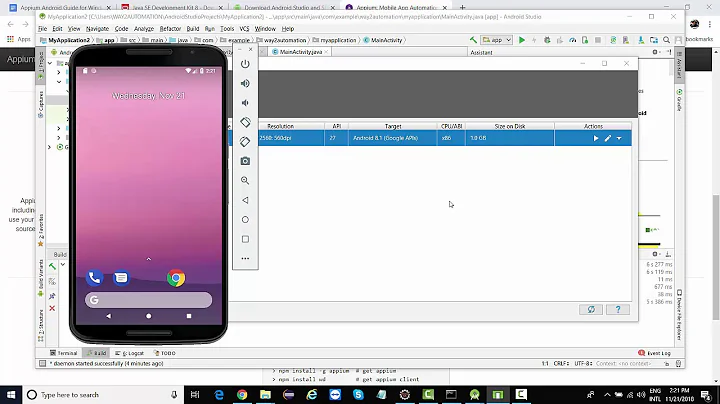Use AssignUserId as variable in Apache MPM ITK
78
Solution 1
From Apache 2.4 on, mpm-itk has the AssignUserIDExpr and AssignGroupIDExpr directives, which allows an Apache expression to be used in dynamically defining a user and group. In combination with mod-rewrite it will probably do what you want.
Solution 2
You can use mod_macro.
Define one VirtualHost macro an use it with Use
<Macro Hosting $who>
<Directory "/home/$who">
allow from all
Options +FollowSymLinks
</Directory>
<VirtualHost *:80>
ServerName $who.domain.com
AssignUserId $who $who
</VirtualHost>
</Macro>
Use Hosting me
Use Hosting you
Related videos on Youtube
Author by
Magudesh
Updated on September 18, 2022Comments
-
 Magudesh almost 2 years
Magudesh almost 2 yearsI am using eclipse to deploy java RESTful web project in amazon elastic beanstalk and it is successfully deployed. Snapshot of my Beanstalk dashboard is:
 .
.When I try to access the http://event-api.us-west-2.elasticbeanstalk.com/ URL, it shows 404 error. Why am I getting this 404 error?
I did not change web.xml
<?xml version="1.0" encoding="UTF-8"?> <web-app xmlns:xsi="http://www.w3.org/2001/XMLSchema-instance" xmlns="http://java.sun.com/xml/ns/javaee" xmlns:web="http://java.sun.com/xml/ns/javaee/web-app_2_5.xsd" xsi:schemaLocation="http://java.sun.com/xml/ns/javaee http://java.sun.com/xml/ns/javaee/web-app_2_5.xsd" id="WebApp_ID" version="2.5"> <display-name>EventMngmtApi</display-name> <servlet> <servlet-name>Jersey REST Service</servlet-name> <servlet-class>com.sun.jersey.spi.container.servlet.ServletContainer</servlet-class> <init-param> <param-name>com.sun.jersey.config.property.packages</param-name> <param-value>com.vasithwam.users,com.vasithwam.event</param-value> </init-param> <load-on-startup>1</load-on-startup> </servlet> <servlet-mapping> <servlet-name>Jersey REST Service</servlet-name> <url-pattern>/*</url-pattern> </servlet-mapping> </web-app>




